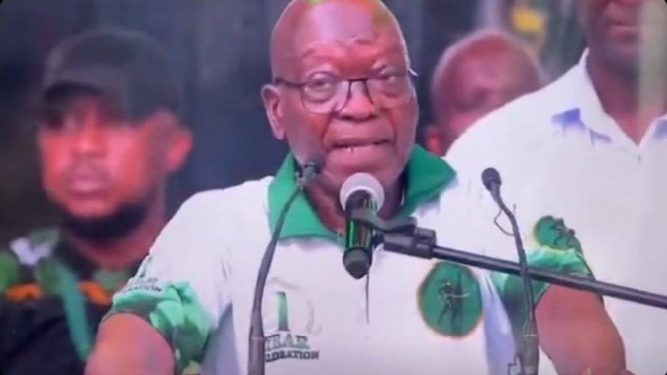In an explosive political commentary, former ANC heavyweight Mavuso Msimang has branded Fikile Mbalula the “worst Secretary General” (SG) the African National Congress (ANC) has ever had. His comments, which have ignited fierce debate across political circles, go far beyond a simple criticism of Mbalula’s leadership. Msimang has pointed a sharp finger at both Mbalula and President Cyril Ramaphosa, alleging that their political actions align too closely with the interests of the apartheid regime, particularly the vision of former apartheid president F.W. de Klerk.
Msimang, a former director-general of the ANC and a seasoned political figure, made these damning remarks during a recent interview, where he lambasted the ANC’s current leadership for abandoning the core principles of the liberation movement. According to Msimang, under the leadership of Mbalula and Ramaphosa, the party has effectively become an agent of the very system it once fought against. He accused them of promoting policies that cater more to the legacy of apartheid than to the ideals of freedom and justice that the ANC once championed.
“Mbalula is the worst SG the ANC has ever had,” Msimang declared, criticizing his leadership as weak and incapable of rallying the party’s base. He further argued that Mbalula’s failures have not only undermined the party’s credibility but also allowed the ANC to stray from its foundational goals. According to Msimang, Mbalula’s reluctance to challenge the status quo has hindered the ANC from initiating the transformative changes needed to address deep-rooted inequalities in South African society.
However, Msimang’s attack wasn’t confined to Mbalula alone. He leveled a fierce accusation against Ramaphosa, suggesting that the president, in concert with Mbalula, has been carrying out a political agenda that aligns with the mandates set forth by de Klerk. “Mbalula and Ramaphosa are essentially carrying out the mandate given to them by De Klerk,” Msimang said, provoking an uproar with his assertion that the current leadership is advancing a policy direction that betrays the anti-apartheid struggle and disregards the aspirations of South Africa’s marginalized majority.
Msimang’s statement is all the more contentious given the ANC’s historical role in leading the fight against apartheid. De Klerk, as the last apartheid-era president, oversaw the negotiations that led to the country’s democratic transition. For Msimang to suggest that Ramaphosa and Mbalula are carrying forward his agenda raises serious questions about the current leadership’s commitment to the principles of the ANC’s liberation struggle.
At a time when the ANC is grappling with internal divisions, corruption scandals, and a loss of support amid South Africa’s ongoing economic struggles, Msimang’s comments resonate with growing frustration within the party. Many critics have accused Ramaphosa’s administration of failing to address the dire socio-economic conditions faced by ordinary South Africans, further exacerbating dissatisfaction within the ruling party.
The timing of Msimang’s remarks is particularly significant as the ANC prepares for the 2024 national elections. With the party’s leadership under intense scrutiny, Msimang’s words have tapped into a deeper vein of discontent, and the consequences of this bold critique are likely to reverberate across the political landscape in the coming months.
Msimang’s challenge to the ANC leadership highlights the deep ideological divides within the party, exposing the difficult balance between the legacy of the liberation struggle and the political compromises that have shaped post-apartheid South Africa.






















